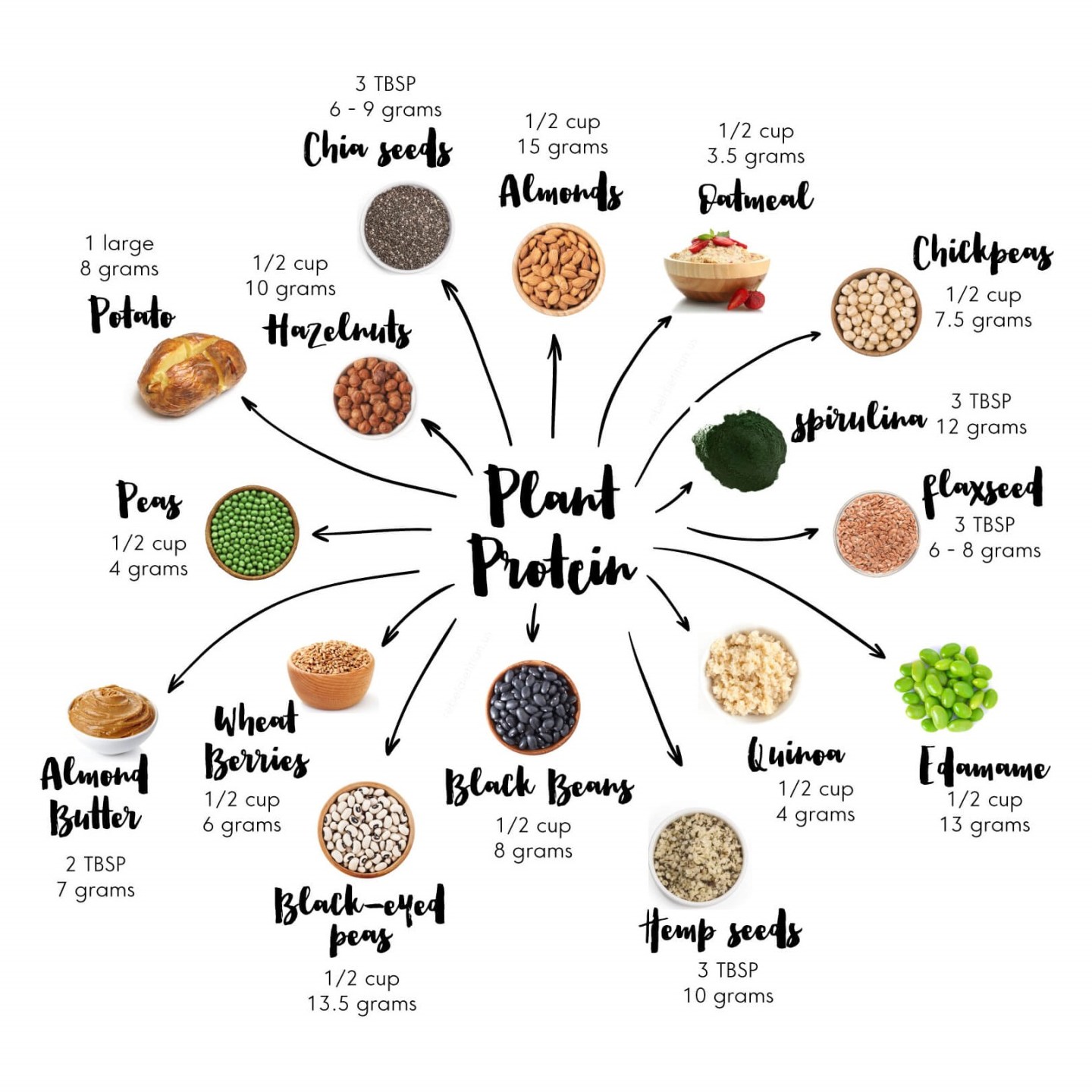Healthy Plant-Based Protein Sources

Why Choose Plant-Based Protein?
Plant-based protein sources offer several advantages over animal-based protein sources. First, plant-based proteins are typically lower in saturated fat and calories, making them a healthier choice for those looking to maintain a healthy weight or reduce their risk of heart disease. Additionally, plant-based proteins are rich in fiber, vitamins, and minerals, all of which are important for overall health and wellbeing.
Top Plant-Based Protein Sources
1. Lentils
Lentils are a versatile and nutrient-dense legume that is rich in protein, fiber, iron, and folate. They are also low in fat and calories, making them an excellent choice for those looking to lose weight or maintain a healthy weight. Lentils can be used in a variety of dishes, including soups, stews, salads, and veggie burgers.
2. Chickpeas
Chickpeas, also known as garbanzo beans, are another excellent source of plant-based protein. They are rich in protein, fiber, iron, and magnesium, making them a great choice for vegans and vegetarians. Chickpeas can be used in a variety of dishes, including hummus, falafel, and curries.
3. Quinoa
Quinoa is a gluten-free grain that is rich in protein, fiber, and essential amino acids. It is also a good source of magnesium, iron, and potassium. Quinoa can be used in a variety of dishes, including salads, stir-fries, and as a substitute for rice or pasta.
4. Tofu
Tofu is a soy-based protein that is rich in protein, iron, and calcium. It is also low in calories and fat, making it an excellent choice for those looking to maintain a healthy weight. Tofu can be used in a variety of dishes, including stir-fries, soups, and salads.
5. Tempeh
Tempeh is a fermented soybean product that is rich in protein, fiber, and probiotics. It is also a good source of iron and calcium. Tempeh can be used in a variety of dishes, including stir-fries, sandwiches, and salads.
Benefits and Drawbacks of Plant-Based Protein
Benefits
- Lower in saturated fat and calories
- Rich in fiber, vitamins, and minerals
- May reduce the risk of heart disease, diabetes, and certain types of cancer
- May promote weight loss and weight management
- May improve gut health and reduce inflammation
Drawbacks
- May be lower in certain amino acids
- May be more difficult to meet protein needs for athletes or those with high protein needs
- May be more expensive than animal-based proteins
- May require more time and effort to prepare
FAQs
Q: Can you get enough protein from plant-based sources?
A: Yes, it is possible to meet your protein needs with plant-based sources. However, it may require more planning and variety in your diet to ensure you are getting all of the essential amino acids.
Q: Is plant-based protein better for you than animal-based protein?
A: Both plant-based and animal-based proteins can be part of a healthy diet. It is important to choose a variety of protein sources and to focus on whole foods rather than processed options.
Q: Can plant-based protein help with weight loss?
A: Yes, plant-based protein sources can be helpful for weight loss due to their lower calorie and fat content, as well as their high fiber content which can promote feelings of fullness.
Q: What are some plant-based protein sources for vegetarians and vegans?
A: Some excellent plant-based protein sources for vegetarians and vegans include beans, lentils, chickpeas, tofu, tempeh, quinoa, nuts, and seeds.
Conclusion
Plant-based protein sources offer a variety of health benefits and can be a delicious and nutritious addition to any diet. By incorporating a variety of plant-based protein sources into your meals, you can improve your health, reduce your risk of chronic disease, and help protect the environment.
